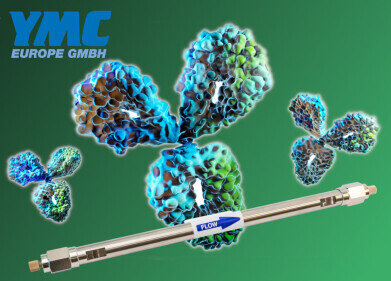Ion chromatography (IC)
Does Alcohol Contribute to Arthritis? - Chromatography Explores
Jun 21 2019
Alcohol is known to contribute to many different health problems - heart, liver and weight issues can all be attributable in some degree to alcohol use. A recent study has investigated the potential effect alcohol might have on developing arthritis. In the paper - Alcohol Consumption and Development of Arthritis among patients with Anti-Citrullinated Peptide Antibodies and Musculoskeletal Pain published in Annals of the Rheumatic Diseases - scientists report on work carried out on alcohol consumption and biomarkers.
Arthritis - in the joints
Although arthritis is a common disease, it is not fully understood. It is not a single disease, but a term used to refer to a pain in a joint. People of all ages, races and sex can have arthritis - it is thought to be one of the most common cause of disability in the US. Common symptoms include swelling, pain and a reduced range of motion in a joint. Some types of arthritis can also affect organs like the heart or lungs.
Although there are many different types of arthritis, they can be broken down into several types. These are:
- degenerative arthritis - occurs when the cartilage that provides cushioning at the ends of our bones wears away. Bone rubs against bone causing pain, swelling and stiffness.
- metabolic arthritis - a build-up of uric acid in the body can form crystals in the joints. Known as gout.
- Infectious arthritis - Joint inflammation triggered by a bacterium or virus. Can be caused by food poisoning, STD or hepatitis C.
- Inflammatory arthritis - occurs when the body’s immune system attacks the body. An autoimmune disease that causes the inflammation in the joints. Rheumatoid arthritis is an example of inflammatory arthritis.
Susceptibility to arthritis
Certain people who have anti-citrullinated peptide antibodies (ACPA) are thought to be susceptible to getting rheumatoid arthritis. Previous studies have suggested that there is an inverse relationship between alcohol consumption and rheumatoid arthritis. The study referenced above set to find if there was a link between alcohol consumption - as measured by a biomarker PEth - and development of arthritis.
The study followed 104 ACPA positive individuals over an average period of 72 months. They were followed to see if rheumatoid arthritis developed during the period of the study and this was correlated with alcohol consumption as determined by the biomarker PEth - which was analysed using chrpomatography coupled with mass spectrometry. Some of the latest developments in mass spectrometry are discussed in the article, ionRocket: An innovative Thermal Desorption and Pyrolysis Device for Direct Analysis in Real Time-Mass Spectrometry (DART-MS) for Rapid Characterisation of Difficult Samples.
The researchers report that the study did not show significant association between alcohol consumption measured by PEth and ACPA positive patients. They state: PEth does not appear to be a clinically useful biomarker to predict disease development in ACPA-positive at-risk populations. But, they did find the expected correlation between ACPA and arthritis.
Events
Apr 22 2025 Kintex, South Korea
Analytica Anacon India & IndiaLabExpo
Apr 23 2025 Mumbai, India
Apr 27 2025 Portland, OR, USA
May 11 2025 Vienna, Austria
May 18 2025 Tempe. AZ, USA
.jpg)













